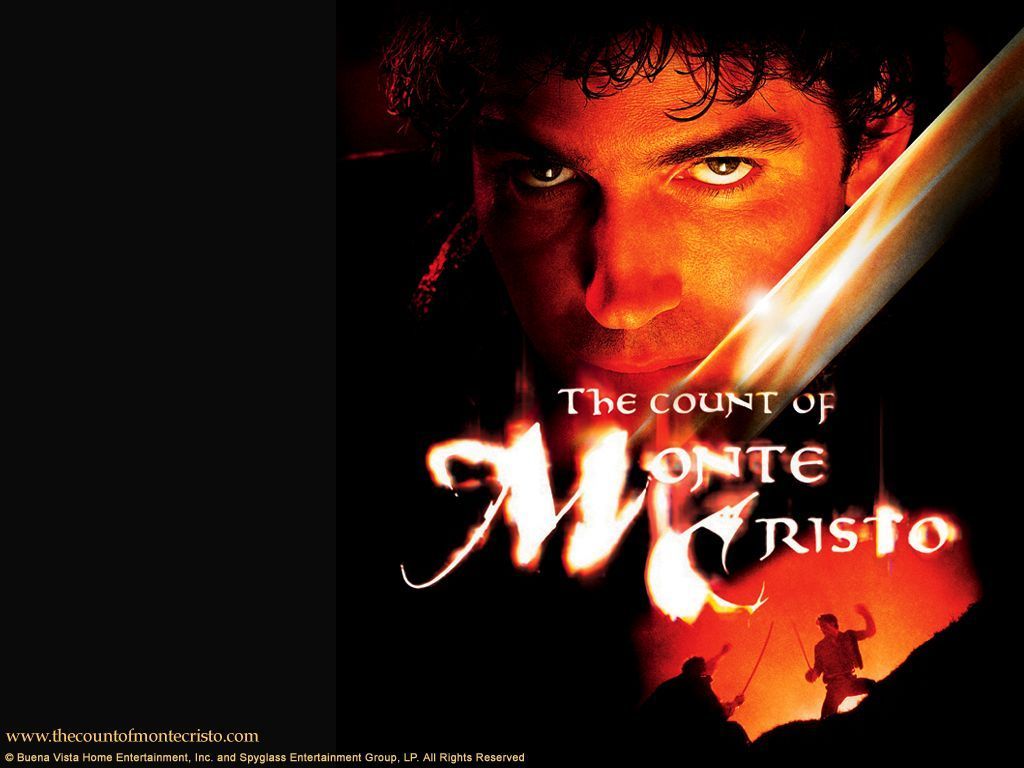Review Of Alexandre Dumas' The Count Of Monte Cristo: Revenge, Justice, And Redemption

Table of Contents
A Tale of Unjust Imprisonment and the Seeds of Revenge
Edmond Dantès, a young sailor on the cusp of happiness, finds his life cruelly shattered by a web of deceit and betrayal. Falsely accused of treason by envious rivals, he endures years of unjust imprisonment in the infamous Chateau d'If. This wrongful imprisonment forms the foundation of the novel, fueling the fiery determination that will ultimately transform him into the enigmatic Count of Monte Cristo.
- False accusation and betrayal by friends: Fernand Mondego, driven by jealousy and ambition, orchestrates Edmond's downfall with the help of Danglars, a treacherous business associate, and the ambitious Villefort. This betrayal underscores the novel's exploration of human nature's darker impulses.
- The harsh conditions of the Chateau d'If: The brutal reality of Edmond's confinement, the despair, and the slow erosion of hope, highlight the injustice of his situation and lay the groundwork for his subsequent thirst for revenge.
- The fortuitous encounter with Abbé Faria: This pivotal meeting introduces the element of fate and serendipity. Abbé Faria, a learned and wise priest, becomes Edmond's mentor, imparting knowledge, skills, and the crucial information about the hidden treasure on Monte Cristo.
- Acquisition of knowledge and wealth: Edmond emerges from prison not merely physically transformed but intellectually and financially empowered, ready to execute his elaborate plan for revenge. His transformation exemplifies the power of knowledge and the potential for self-improvement even in the direst circumstances.
The Count's Elaborate Schemes of Revenge and Their Execution
Escaping from prison, Edmond Dantès reinvents himself as the wealthy and influential Count of Monte Cristo. He methodically and systematically dismantles the lives of those who wronged him, demonstrating a chilling mastery of manipulation and intrigue. The Count’s revenge is not impulsive; it’s carefully calculated, a masterpiece of strategic planning.
- The systematic dismantling of Fernand Mondego's life: The Count strategically targets Fernand's reputation, wealth, and family, exposing his past actions and ensuring his downfall. This demonstrates the far-reaching consequences of betrayal.
- The exposure of Danglars' treachery: Danglars' greed and ambition are exposed, leading to his financial ruin and social disgrace. The Count's actions underscore the eventual consequences of unchecked avarice.
- The subtle manipulation of Villefort: Villefort's ambition and moral compromises are skillfully exploited by the Count, leading to the unraveling of his career and his family's happiness. This highlights the hypocrisy of those who abuse their power.
- The different methods of revenge employed: The Count employs a range of tactics, from financial ruin to social humiliation and the subtle manipulation of events, showcasing the multifaceted nature of revenge and the various ways it can be enacted. His methods explore the moral ambiguities inherent in the pursuit of justice.
Justice, Mercy, and the Question of Forgiveness
The Count of Monte Cristo doesn't simply offer a straightforward tale of revenge. It grapples with the complex interplay between justice, mercy, and forgiveness. While the Count seeks retribution, the novel also explores the ethical dilemmas inherent in his actions and the potential for redemption, even for his enemies.
- The complexities of seeking justice versus enacting revenge: The Count's actions blur the lines between justice and vengeance, raising questions about the morality of self-administered justice.
- Instances where the Count shows mercy or spares his enemies: Despite his relentless pursuit of revenge, there are moments where the Count shows mercy, highlighting the internal conflict within him and the potential for compassion even in the face of immense suffering.
- The ambiguous nature of his "justice": The novel does not offer a clear-cut judgment on the Count's actions. The consequences of his revenge are far-reaching and often affect innocent individuals, raising questions about the morality and effectiveness of his approach to justice.
- The impact of his actions on himself and those around him: The Count's pursuit of revenge has a profound effect not only on his enemies but also on himself and those he comes into contact with. This explores the devastating consequences of prolonged hatred and vengeance.
Redemption and Finding Peace: A Look at Character Arcs
The novel explores the possibility of redemption for both the Count and his enemies. Edmond Dantès’ journey is a compelling example of transformation, moving from a victim of injustice to a vengeful mastermind, and finally to a man seeking peace and reconciliation.
- Edmond's transformation from innocent victim to vengeful Count and, ultimately, to a man seeking peace: Edmond’s arc is central to the novel’s exploration of redemption. His eventual embrace of mercy and forgiveness demonstrates the potential for personal growth and spiritual transformation even after enduring immense suffering.
- The potential for redemption for characters like Fernand and Danglars: While they remain largely unrepentant, the novel leaves open the possibility of their eventual recognition of their wrongdoing and the potential for personal growth.
- The role of love and forgiveness in the process of redemption: The presence of Haydée and the enduring love for Mercedes, albeit complicated, play a role in shaping the Count's ultimate choices and his eventual path towards peace.
The Enduring Legacy of The Count of Monte Cristo
The Count of Monte Cristo remains a powerful and influential work of literature, continuing to captivate readers with its thrilling plot and exploration of timeless themes. Its enduring popularity is evident in its numerous adaptations and its influence on subsequent works of literature and popular culture.
- Adaptations to film, television, and other media: The novel has inspired countless adaptations across various media, demonstrating its enduring appeal and its capacity to be reinterpreted for different audiences.
- The novel's exploration of timeless themes: The themes of betrayal, revenge, justice, and redemption are universal and continue to resonate with audiences across different cultures and historical periods.
- Its influence on subsequent works of literature: The Count of Monte Cristo has profoundly influenced many subsequent works of literature, leaving an indelible mark on the genre of adventure and revenge stories.
Conclusion: A Timeless Masterpiece of Revenge, Justice, and Redemption
The Count of Monte Cristo is more than just a thrilling adventure novel; it’s a profound exploration of human nature, justice, and the complex journey towards redemption. Alexandre Dumas masterfully weaves a tale of betrayal, revenge, and the enduring power of hope. The novel's exploration of these timeless themes continues to resonate with readers today, making it a classic of world literature. We encourage you to experience—or re-experience—the thrilling plot and profound insights of The Count of Monte Cristo and delve deeper into the works of Alexandre Dumas and the enduring power of its themes. Discover the captivating world of The Count of Monte Cristo for yourself—you won't be disappointed.

Featured Posts
-
 Sandhagen Vs Figueiredo Ufc On Espn 67 Fight Night Results
May 05, 2025
Sandhagen Vs Figueiredo Ufc On Espn 67 Fight Night Results
May 05, 2025 -
 Pimblett Vs Chandler Ufc 314 Referee Intervention Requested Due To Concerns
May 05, 2025
Pimblett Vs Chandler Ufc 314 Referee Intervention Requested Due To Concerns
May 05, 2025 -
 Athy Artist Unveils Powerful New Works In Local Exhibition
May 05, 2025
Athy Artist Unveils Powerful New Works In Local Exhibition
May 05, 2025 -
 Eubank Jr Claims Benn Bout Eclipse Canelo Fight
May 05, 2025
Eubank Jr Claims Benn Bout Eclipse Canelo Fight
May 05, 2025 -
 Another Simple Favor Director Addresses Blake Lively And Anna Kendricks On Set Relationship
May 05, 2025
Another Simple Favor Director Addresses Blake Lively And Anna Kendricks On Set Relationship
May 05, 2025
Latest Posts
-
 Colonial Downs And Stone Partner For The Virginia Derby
May 05, 2025
Colonial Downs And Stone Partner For The Virginia Derby
May 05, 2025 -
 Stone Confirms Virginia Derby At Colonial Downs Dates And Details
May 05, 2025
Stone Confirms Virginia Derby At Colonial Downs Dates And Details
May 05, 2025 -
 Virginia Derby 2024 Stones Confirmation At Colonial Downs
May 05, 2025
Virginia Derby 2024 Stones Confirmation At Colonial Downs
May 05, 2025 -
 Colonial Downs To Host Virginia Derby Stones Official Announcement
May 05, 2025
Colonial Downs To Host Virginia Derby Stones Official Announcement
May 05, 2025 -
 Stone To Announce Virginia Derby Meet At Colonial Downs Full Details Revealed
May 05, 2025
Stone To Announce Virginia Derby Meet At Colonial Downs Full Details Revealed
May 05, 2025
